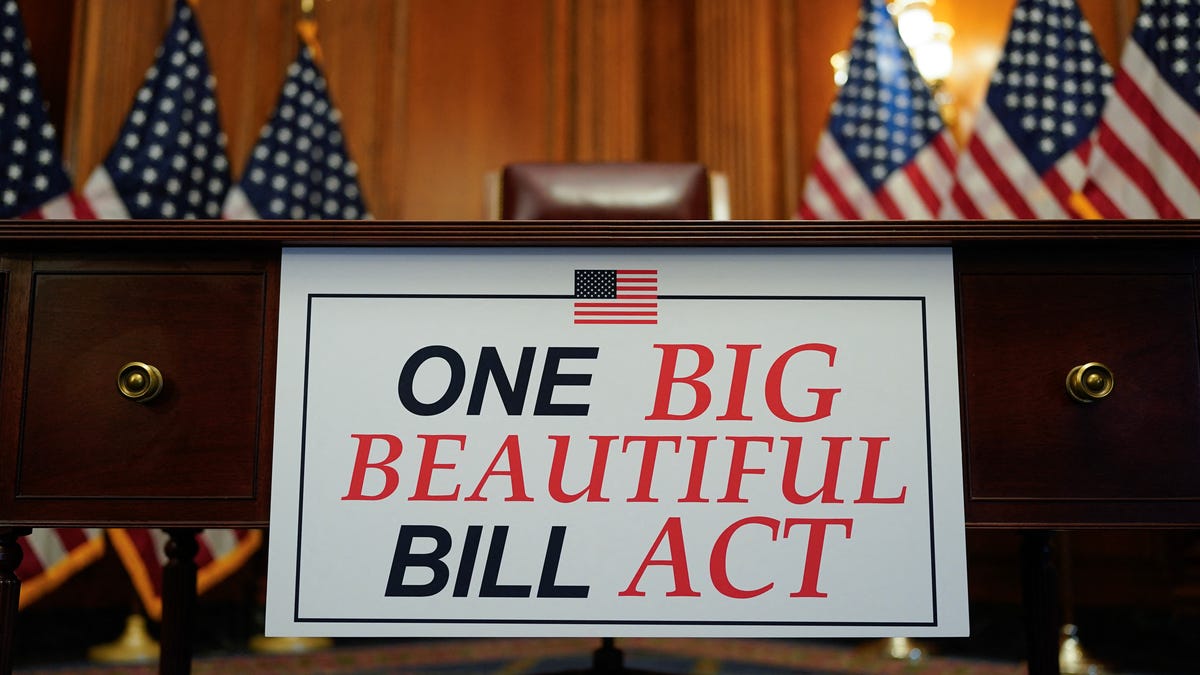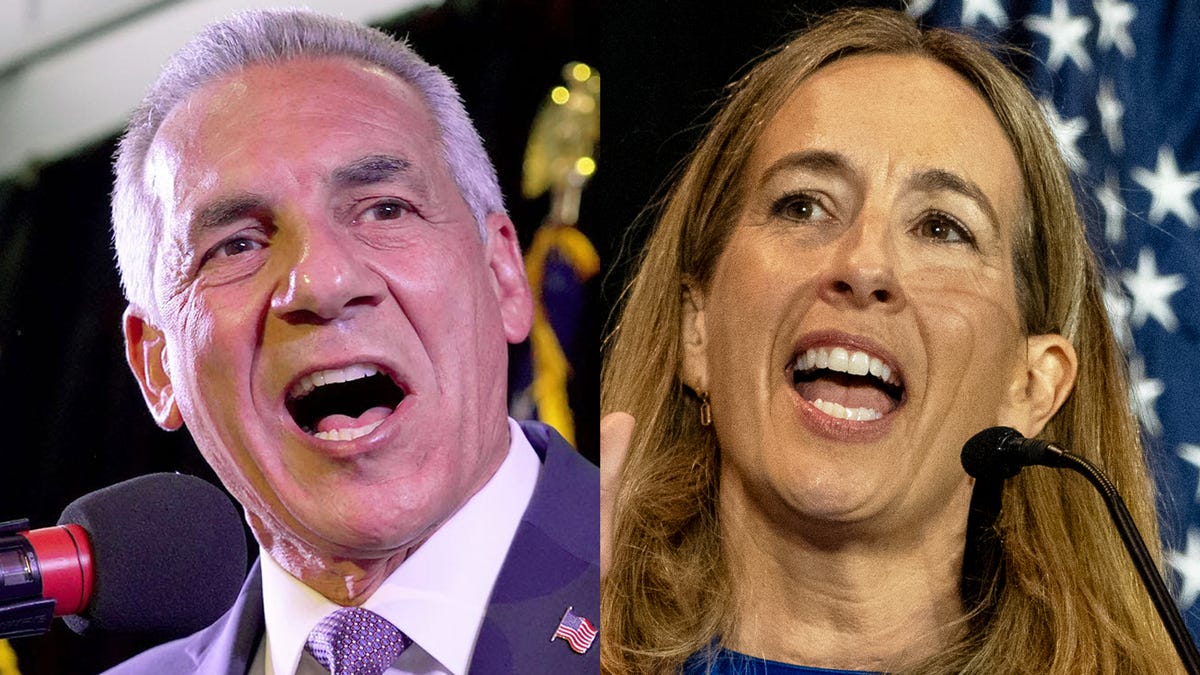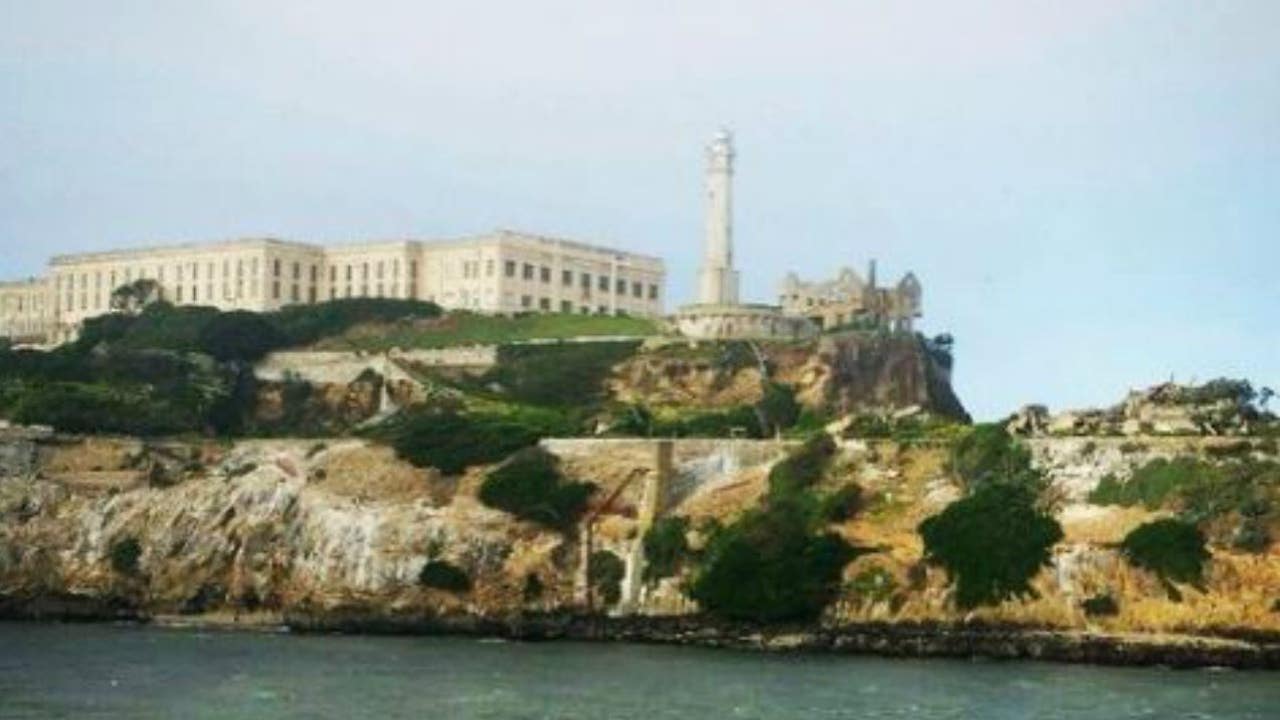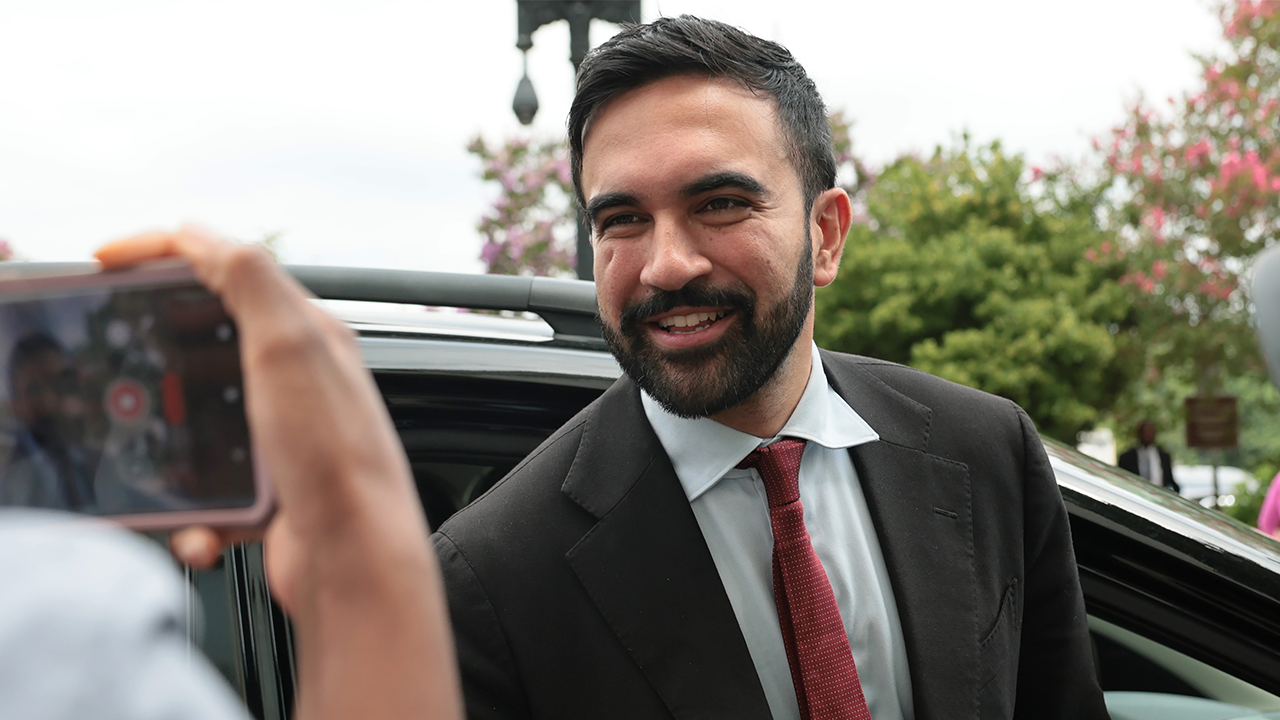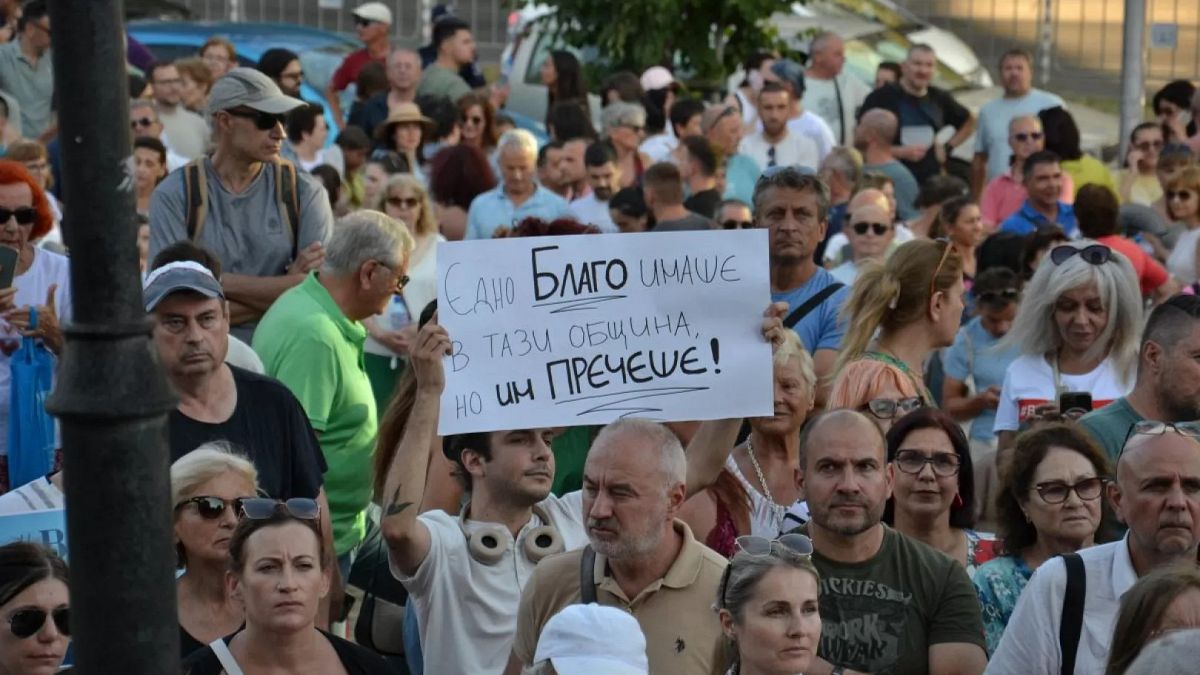News
A Montana farmer with a flattop and ample lobbyist cash stands between GOP and Senate control
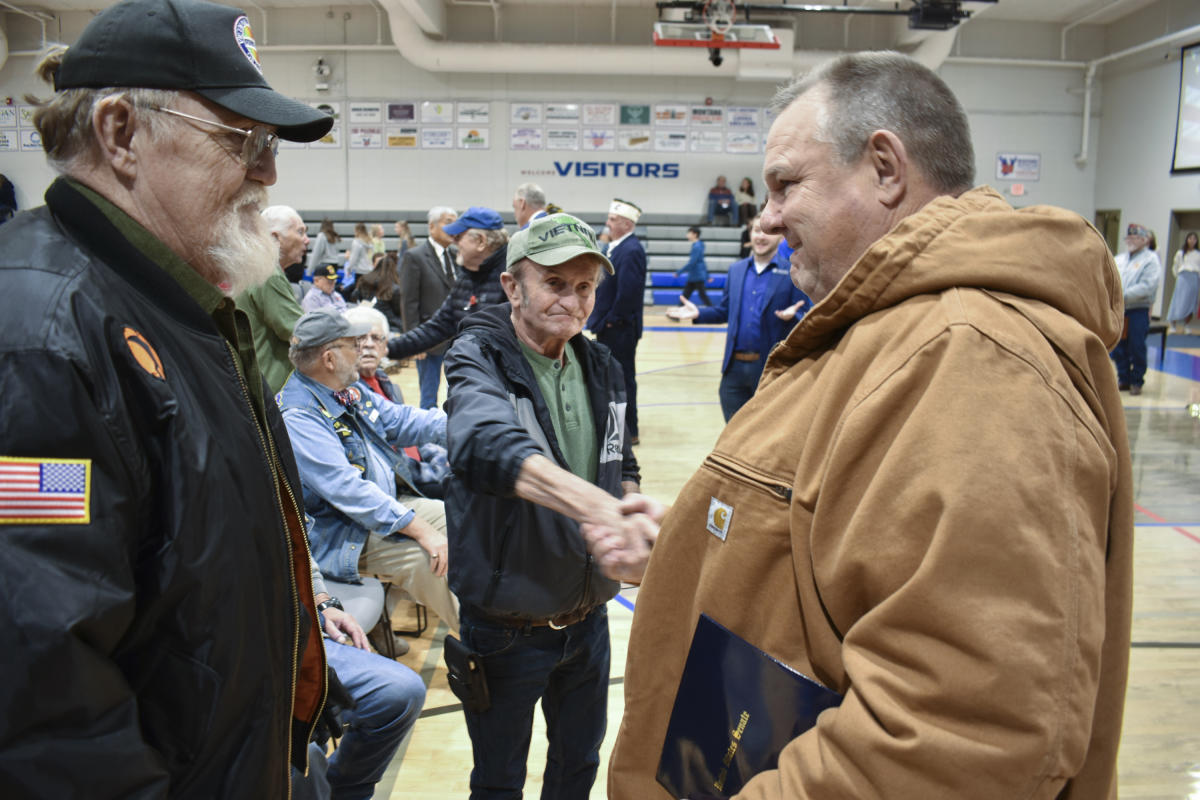
BIGFORK, Mont. (AP) — After 17 years in the U.S. Senate, Democrat Jon Tester is a well-known commodity in Montana — a plain-spoken grain farmer with a flattop and a carefully cultivated reputation as a moderate.
The 67-year-old lawmaker smiled and laughed his way through the crowd at a Veterans Day event in Bigfork, a small town on Flathead Lake where the population has surged in recent years. He chatted with veterans who supported him and some who didn’t, then stood behind a lectern in the Bigfork High School gymnasium to promote his biggest recent accomplishment: expanded federal health care for millions of veterans exposed to toxic smoke at military “burn pits.”
Tester has survived three close elections and a changed national political landscape to emerge as the lone Democrat still holding high office in Montana. The 2024 election brings possibly his stiffest challenge yet: Republicans, just two seats short of Senate control, are expected to spend tens of millions on attack ads painting him as a Washington insider tainted by lobbyist cash.
Ousting Tester also would cement a Republican lock on a state that voted overwhelmingly for Republican Donald Trump in the 2020 presidential election.
Tester entered the Senate after selling Montana voters on his authenticity, and the former high school band teacher’s message hasn’t changed much. He still mingles comfortably with union members, ranchers and veterans, has a record of working on their behalf, and says his heart remains firmly in his sparsely populated state, a vast expanse that spans from the arid Great Plains to the lush forests of the Pacific Northwest.
Still, authenticity is harder to sell when you’ve become a top Washington fundraiser. He’s taken in almost $20 million for next year’s election, ranking Tester sixth among Senate candidates nationwide, according to Federal Election Commission data through September. Tester insisted that the money hasn’t changed him, that he doesn’t even know where it all comes from.
“I can’t tell you who’s donating to me. Even from within the state of Montana, I can’t tell you who donates to me because I don’t look at that list,” he said in an interview. “It’s not important. I trust that those people believe in me and I’m going to continue to do the same job.”
His campaign reports reveal abundant lobbyist cash, the kind that rarely comes from people who don’t want something, and yet the lawmaker’s journey from outsider to fundraising behemoth has largely been one of necessity. With West Virginia Democratic Sen. Joe Manchin’s decision against seeking another term, Tester has become a top target for Senate Minority Leader Mitch McConnell, R-Ky., and his massive fundraising operation.
McConnell’s aspirations to again be majority leader could get bogged down if a primary fight develops between his anointed candidate in Montana, U.S. Navy SEAL Tim Sheehy, and U.S. Rep. Matt Rosendale, one of the far-right House members who ousted fellow Republican Kevin McCarthy of California as House speaker. Dozens of state lawmakers have encouraged Rosendale to enter. He ran against Tester in 2018 and lost despite a huge push from then-President Trump.
Republican unity next November would narrow Tester’s path to victory, especially if he’s branded as a Washington insider. As he’s gained seniority and influence — and as election spending nationwide has exploded — the flood of campaign cash that’s flowed toward Tester has left him vulnerable to attack.
The potency of the authenticity issue even within his own party was on display during a recent town hall hosted by Tester in the Democratic stronghold of Butte, where a group of activists pressed him repeatedly to call for a cease-fire in the Israel-Hamas war. The lawmaker, who heads the Senate Appropriations subcommittee on defense, rebuffed their pleas, saying Israel had a right to defend itself against the Oct. 7 attack by Hamas.
That rankled Noah Sohl of Missoula, who said he twice voted for Tester and supported the Democrat’s last reelection by making phone calls and registering voters. The nursing student drew a straight line between donations to Tester’s campaign by defense industry lobbyists and Tester’s opposition to a cease-fire.
After becoming the panel’s chairman in 2021, Tester received more than $160,000 in contributions from employees and committees representing the defense industry. The donations came at a crucial juncture for both the defense budget and Lockheed Martin, which benefited from $1.8 billion for the F-35 fighter jet that Tester’s subcommittee pushed as part of a military spending package.
Sohl pledged not to help Tester this election if he won’t change his stance on a cease-fire. Sohl acknowledged that could benefit Republicans.
“They’re all licking their chops over the fact that among his (Tester’s) constituents, there’s a rising group that don’t agree with him,” Sohl said. “His big thing is, ‘I’m not like those Republicans. I’m a true Montanan just going to Washington to fight for the people who voted for me.’ But it seems like he lost his footing.”
Tester dismissed any notion that campaign donations sway his vote or that he’s fundamentally changed since 2006. He also brushed off the increased pressure on him since Manchin’s departure.
Veterans issues resound in Montana, which has the second-highest percentage of veterans in the U.S. among the adult civilian population, according to the U.S. Census Bureau. Tester chairs the Senate Veterans’ Affairs Committee.
“I take my cues directly from the veterans of this state,” Tester told the assembly at Bigfork High School.
In the front row sat Terry Baker, who served in the Vietnam War and voted against Tester the first time he ran. Tester’s backing of veterans converted Baker into a supporter. He said the lawmaker remains the only Democrat he has ever voted for.
“He’s been a tremendous asset for all the veterans’ groups,” said Baker, 72, of Kalispell. “The fact that there are a tremendous amount of veterans in Montana, that will help Tester out.”
Montana itself has changed significantly since Tester came to office. There’s been an influx of newcomers from Arizona, Washington state, California and Texas. Farmland is yielding to subdivisions even as cities such as Bozeman and Missoula have housing crises.
The state’s politics have lurched rightward. When Tester entered the Senate, Democrats held almost every statewide elected office in Montana, from governor, secretary of state and attorney general, to two of the state’s three seats in Congress. Since the 2020 election, that’s down to Tester’s seat.
Republican state lawmakers maneuvered unsuccessfully to hobble his chances for a fourth term this spring. They proposed election rule changes that would have allowed only the top two candidates to advance from next year’s Senate primary. That likely would have kept third-party candidates off the general election ballot and could have tipped the election for Republicans.
Past races for Tester’s seat were close enough some Republicans blamed third-party candidates for the Democrat’s victories. Concern that could happen again can’t be discounted. Montana Libertarian Party Chairman Sid Daoud announced Monday that he’s entering next year’s Senate race, raising Republican fears of a third-party spoiler.
Tester rode to office on the unpopularity of the Iraq war and a specter of scandal that plagued his predecessor, three-term Sen. Conrad Burns, over the Republican’s close ties to “super-lobbyist” Jack Abramoff. Abramoff was jailed for conspiracy and fraud. No charges were filed against Burns, a former cattle auctioneer who dismissed criticism over the matter as “old political hooey.”
Challenges to Tester’s authenticity dogged him during the 2018 election cycle, when he ranked for a time as the top recipient of lobbyist donations among members of Congress. He currently ranks second with $407,000 in contributions from lobbyists, putting him just behind Washington state Democratic Sen. Maria Cantwell, according to the research group OpenSecrets.
Those direct contributions do not include millions of dollars expected to be spent on the race from outside groups, including McConnell’s formidable operation and comparable Democratic organizations.
So far, there is nothing to indicate that money flowing Tester’s way swayed his decision-making or that he did anything wrong. Still, Republicans have highlighted the ties to lobbyists in an ad campaign launched earlier this month that declares “after nearly two decades in Washington, Jon Tester has changed.”
Tester invited anyone who think he’s changed to come out and “pick rock” at the farm near the small town of Big Sandy that he runs with his wife, Sharla. He said he’s still cognizant that in Montana, every connection with voters is vital.
To his way of thinking, that makes authenticity the kind of thing money can’t buy.
“This is an eyeball-to-eyeball state,” he said.

News
Senate panel to vote on federal judge nomination for Emil Bove, who defended Trump

Emil Bove, President Trump’s pick to serve as a judge on the U.S. Court of Appeals for the Third Circuit, during a Senate Judiciary Committee hearing on June 25.
Al Drago/Bloomberg via Getty Images
hide caption
toggle caption
Al Drago/Bloomberg via Getty Images
An attorney tied to some of the most aggressive legal moves by the Justice Department this year is in line to get a promotion soon, if President Trump gets his way.
A Senate panel is preparing to vote Thursday to advance a life-tenured judicial nomination for Emil Bove. Bove, 44, previously served as a federal prosecutor in Manhattan and defended Trump in a pair of criminal cases filed by the Justice Department.

The White House says Bove is an ideal nominee for an open seat on the U.S. Court of Appeals for the Third Circuit. Trump has posted on social media that Bove would “do anything else that is necessary to, MAKE AMERICA GREAT AGAIN.”
But Bove’s record in and outside the Justice Department has fueled opposition from 900 former DOJ lawyers who identify with both major political parties and a group of more than 75 retired state and federal court judges who fear his intense loyalty to the president would carry over onto the bench.
“The rule of law is really only as strong as the institutions that enforce it and then interpret it — chief among them the DOJ and the judiciary,” said Stacey Young, who leads Justice Connection, a group that helps Justice Department lawyers find ethics and legal advice. “And it would be disgraceful to elevate someone who’s degraded one of those institutions to a lifetime seat on the other.”
Senate Judiciary Committee Chairman Chuck Grassley, R-Iowa, is charging full steam ahead on the nomination, despite requests from Democrats to investigate claims made against Bove by a department whistleblower.
Erez Reuveni, a longtime DOJ lawyer fired this year for acknowledging the administration had mistakenly deported Kilmar Abrego Garcia, recently came forward with allegations that Bove told government lawyers they might need to disobey court orders. Reuveni produced text messages, emails and other documents to back up his claims.
At his confirmation hearing, Bove told lawmakers he was not an “enforcer” or a “henchman” for the president. He denied that he had ever told subordinates to violate a court order. But he said he did not recall telling DOJ lawyers in a meeting that they might have to tell judges “f*** you” if the courts tried to block the White House’s effort to roll out speedy deportations of migrants, as was alleged in the whistleblower complaint.

That’s a red flag for former federal prosecutor David Laufman, who said Bove has taken a “wrecking ball” to the Justice Department this year by firing career prosecutors and FBI agents who worked on cases involving Trump and the Capitol riot on Jan. 6, 2021.
“The volume and quality of the evidence contradicting his failure to recall tells us everything we need to know about his contempt for the judiciary, his contempt for longstanding department norms,” Laufman said.
Laufman added: “Were he confirmed, we have every reason to believe that Mr. Bove would rubber stamp whatever the administration seeks to do and contribute to a majority ruling in favor of the administration with consequences for the entire country.”
But Grassley said in a letter to Judiciary Committee Democrats this week that he was unpersuaded by the whistleblower allegations.
“Following a comprehensive review of the additional documents that you published following the hearing and discussed in the media, I do not believe that they substantiate any misconduct by Mr. Bove,” Grassley wrote.
Grassley also has questioned why Reuveni’s complaint emerged on the eve of a confirmation hearing for Bove, raising the idea it might be a politically coordinated attack.

But Dana Gold, senior counsel at the Government Accountability Project, said she and other lawyers for Reuveni had been working for months, line by line, to navigate the whistleblower process and ethics considerations.
Of the timing, Gold said, “It had nothing to do with tanking Emil Bove’s nomination. It had to do with getting the truth out.”
Gold added: “We do think that the information is highly relevant to Emil Bove’s nomination, that’s clear. It’s really important in terms of how leadership within the Department of Justice has interpreted and asked career attorneys to pursue a political agenda over the rule of law.”
A DOJ spokesman called Bove “a highly qualified judicial nominee who has done incredible work at the Department of Justice to help protect civil rights, dismantle Foreign Terrorist Organizations, and Make America Safe Again.”
Michael Fragoso advanced scores of judicial nominations when he worked as a Republican Senate aide. Fragoso said all signs point to confirmation of Bove, along committee party lines.
“I don’t think Chairman Grassley would be calling the vote if he didn’t have the votes,” said Fragoso, who’s now a fellow at the Ethics and Public Policy Center, a conservative think tank, and an attorney at Torridon Law PLLC.
News
Mike Johnson calls for Epstein files and ICE memos gives deportation guidance: Morning Rundown

Donald Trump brushes off his supporters’ interest in the Jeffrey Epstein case, and House Speaker Mike Johnson speaks out. An ICE memo details how officials can deport immigrants to third countries. And Grok, the Elon Musk-owned AI chatbot, debuts two so-called “companions.”
Here’s what to know today.
Trump’s supporters won’t quit talking about Jeffrey Epstein
Donald Trump responded to mounting criticism of his administration’s handling of Jeffrey Epstein’s case, saying yesterday that he doesn’t understand the buzz. “He’s dead for a long time,” the president said when asked about frustration from his supporters. “He was never a big factor in terms of life. I don’t understand why the Jeffrey Epstein case would be of interest to anybody.”
Earlier in the day, Trump said Attorney General Pam Bondi should release “whatever she thinks is credible” on Epstein, while Bondi herself declined to answer questions about the issue. Though some have called for her to resign, Bondi was defiant during a press conference. “I’m going to be here as long as the president wants me to be here,” she said.
This is Morning Rundown, a weekday newsletter to start your day. Sign up here to get it in your inbox.
Meanwhile, House Speaker Mike Johnson showed a rare break from Trump by joining other conservatives in calling for the release of documents. The administration “should put everything out there and let the people decide,” he told conservative commentator Benny Johnson yesterday. Reps. Marjorie Taylor Greene, Lauren Boebert and John Kennedy are among those who have also called out the Trump administration.
The uproar about the Trump administration’s handling of the Epstein case comes after the Justice Department and FBI released a memo last week saying they found no evidence that the late financier had kept an “incriminating ‘client list’” or evidence that would lead to the prosecution of third parties. Conspiracy theories that “Epstein didn’t kill himself” began to spread almost immediately after Epstein’s 2019 death in a New York City jail as he awaited trial on sex trafficking charges.
Trump also took to Truth Social last Saturday to urge people to move on. If he thought his words would put an end to things, he was wrong. Data from Google shows that searches for Epstein spiked after Trump posted. It was also notable that the post, on the president’s own social network, received many frustrated responses from supporters.
Data from Google shows that searches for Epstein spiked after Trump posted. It was also notable that the post, on the president’s own social network, received many frustrated responses from supporters.
Trump has used conspiracy theories for political gain since before he ran for president, like when he stoked false claims that Barack Obama’s birth certificate was fake. During his most recent presidential campaign, Trump said he would have “no problem” looking into an Epstein client list. And once he took office, Trump appointed people who have also promoted conspiracy theories to senior positions in his administration.
But now, Trump is bearing the brunt of those same conspiracies in an inescapable viral commotion.
Read the full story here.
More politics news:
- Republicans in Congress are racing to pass a $9.4 billion spending cuts package before a Friday deadline.
- Former DNC chair Jaime Harrison is back in the political arena with a new podcast. He spoke with NBC News about why one of his first guests will be Hunter Biden.
- Texas Gov. Greg Abbott said the focus of a special legislative session starting next week would shift to flood relief, but his agenda shows lawmakers will be considering more than flood-related measures.
ICE restarts third country deportations with little notice
The Department of Homeland Security resumed third country deportation flights on Tuesday by deporting five immigrant detainees, all from different countries, to the small nation of Eswatini in Southern Africa. The resumption of third country deportations comes as ICE put out new guidance that its employees are allowed in certain circumstances to deport migrants to countries that are not their own in as little as six hours — and without assurances from the third country that they “will not be persecuted or tortured.”
But “in all other cases” where the U.S. has not received those assurances, ICE must follow certain procedures, including that officials must give immigrants a removal notice in a language the person understands and which tells them where the government intends to deport them. Read the full story here.
More immigration news:
- The Pentagon ordered the removal of half of the 4,000 National Guard troops who were mobilized in response to immigration protests in Los Angeles.
- New ICE guidance requires that people who entered the U.S. without legal authorization remain in immigration detention as they fight deportation proceedings in court — meaning they can’t get bond hearings and could potentially be detained for months or years.
- Immigration authorities want landlords to turn over leases and other information on their tenants, signaling a potential new front in the Trump administration’s efforts to locate people in the country illegally.
- ICE detained a father in Washington state who had been working to legalize his residency status in the United States. His pregnant wife pleaded, “I just want him home.”
Adelita Grijalva wins Democratic primary for Arizona House seat
The daughter of the late Rep. Raúl Grijalva won the Democratic primary to fill his former House seat in Arizona, The Associated Press projects. Adelita Grijalva, a former member of the Pima County Board of Supervisors, defeated activist Deja Foxx and former state Rep. Daniel Hernandez and is set to face Republican Daniel Butierez in a special election in September. Both Grijalva, 54, and Foxx described themselves as progressives, but fissures emerged during the campaign over the issue of generational change.
Raúl Grijalva won 12 terms representing Arizona’s 7th House District before he died in March at the age of 77. The heavily Democratic district encompasses most of Tucson and the state’s southern border. Read the full story here.
Read All About It
- A man is in custody after “American Idol” music supervisor Robin Kaye and her husband, Thomas Deluca, were found dead in their Los Angeles home.
- An elite Chinese cyberspy group hacked at least one state’s National Guard network for nearly a year, the Pentagon found.
- TV personality Chip Gaines defended the inclusion of a same-sex couple in the new show “Back to the Frontier” after backlash from religious conservatives.
- Vance Boelter — the man accused of fatally shooting Minnesota state Rep. Melissa Hortman and her husband last month — was indicted on federal murder charges.
- “Severance” racked up 27 Emmy nominations, the most of any show this year, followed by “The Penguin” with 24 and “The White Lotus” with 23. See a full list of nominees.
- The National League defeated the American League in the 2025 MLB All-Star Game after the Philadelphia Phillies’ Kyle Schwarber went 3 for 3 in the game’s first home run swing-off, following a 6-6 tie.
Staff Pick: Grok’s new chatbots seem designed to shock and entertain

Elon Musk’s AI chatbot Grok turned heads last week for writing antisemitic social media posts on X. Now, Grok has introduced so-called “Companions” that interact with users. One is a flirty Japanese anime character named Ani who offers to make users’ lives “sexier.” The other is a red panda named Bad Rudi with a penchant for foul language.
Tech reporter David Ingram wrote that both bots criticized the Nazis and the action of xAI, the Musk-owned company behind Grok. But the graphic nature of the companions makes them outliers among other AI chatbots with a willingness to embrace hateful language and sexual content. Just look at snippets of Bad Rudi’s conversation with NBC News, in which the character advocated for stealing a yacht, overthrowing the pope and spiking a town’s water supply with hot sauce and glitter. — Elizabeth Robinson, newsletter editor
NBC Select: Online Shopping, Simplified
Curious about which food is best for your young pup? Veterinarians recommend the best puppy food with all the proper nutrients and tell us which ingredients to avoid. And should cats eat wet food, dry food or both? Vets break down what you should know when choosing what to feed your feline friend.
Sign up to The Selection newsletter for hands-on product reviews, expert shopping tips and a look at the best deals and sales each week.
Thanks for reading today’s Morning Rundown. Today’s newsletter was curated for you by Elizabeth Robinson. If you’re a fan, please send a link to your family and friends. They can sign up here.
News
SCOTUS allows dismantling of Education Dept. And, Trump threatens Russia with tariffs
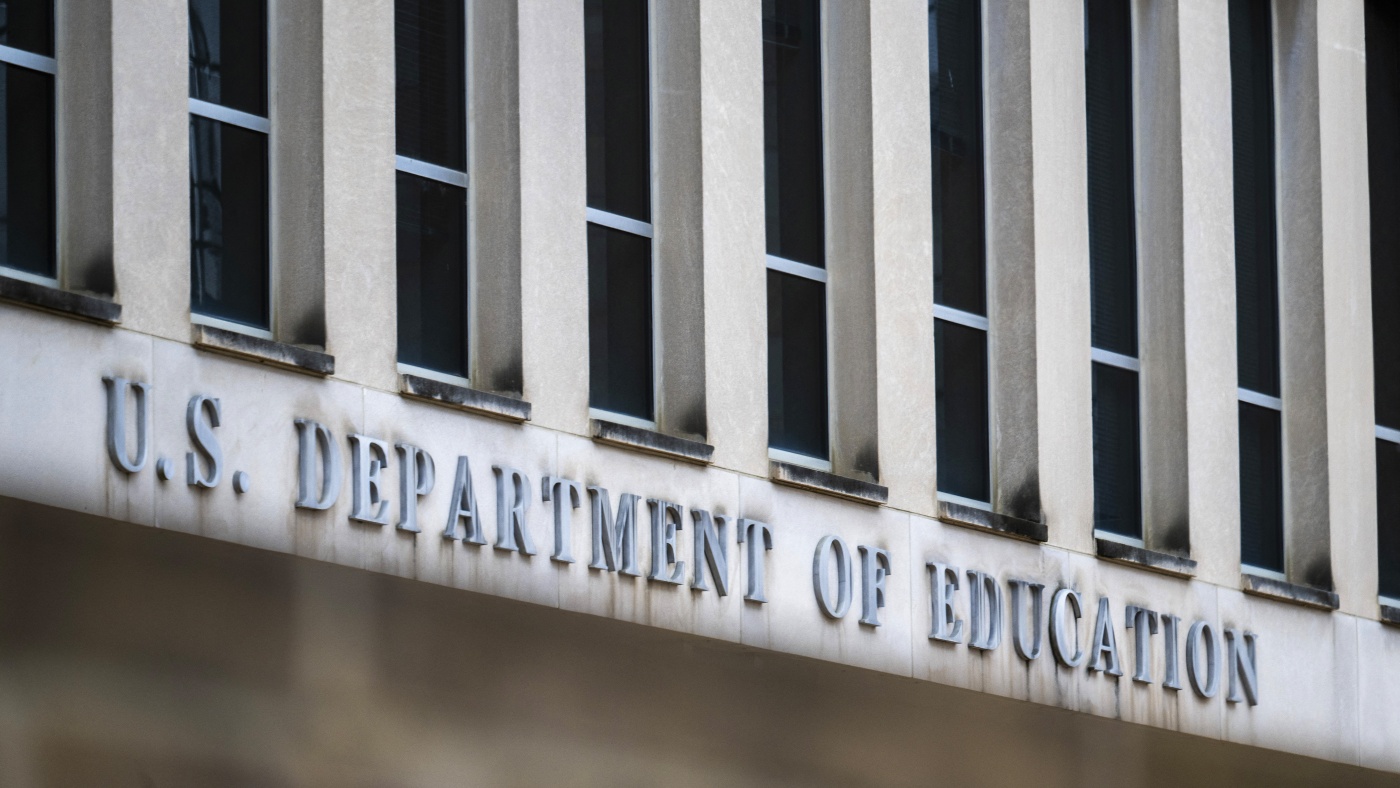
Good morning. You’re reading the Up First newsletter. Subscribe here to get it delivered to your inbox, and listen to the Up First podcast for all the news you need to start your day.
Today’s top stories
The U.S. Supreme Court ruled yesterday that it will allow the Trump administration to resume dismantling the U.S. Department of Education. The Court overruled a lower court that temporarily paused massive cuts at the department. Congress created the department by law and President Trump promised to shut it down without any change in that law, which is why opponents sued.
The Washington, D.C., headquarters of the U.S. Department of Education shown in March.
Win McNamee/Getty Images North America
hide caption
toggle caption
Win McNamee/Getty Images North America
- 🎧 The court’s decision now means that roughly 1,400 Education Department workers will lose their jobs, NPR’s Cory Turner tells Up First. The work that those employees did, including helping local schools support kids with disabilities and children living in poverty, may also cease. The ruling isn’t the final word as the case continues to work its way through lower courts. The plaintiffs’ concern is that by the time they get a final ruling in court, it might not matter, as the harm to the department could be irreversible, Turner stated.
Some Trump supporters over the weekend were surprised when he urged them to move on from the Epstein files. The Justice Department and the FBI released a two-page memo last week stating they found no evidence to support conspiracy theories about the life and death of disgraced financier and convicted sex trafficker Jeffrey Epstein. They stated he really did kill himself in jail in 2019 and left no client list. This comes after Attorney General Pam Bondi previously said on Fox News that she had the list on her desk.
- 🎧 Heading into the last election, a central concept of Trump’s MAGA ideology was the belief that there was a deep state cabal of shadowy figures protecting pedophiles and unsavory people running the government and obstructing Trump’s agenda, says NPR’s Stephen Fowler. Now, Trump has a baseless theory about the files, suggesting Democrats created them to target him. Fowler says it is uncertain if Trump’s shift on the topic has hurt his favorability with his supporters, but it does reiterate the stranglehold the president has on the shape and direction of the GOP.
Trump yesterday threatened to implement heavy tariffs on countries that trade with Moscow if the Kremlin doesn’t reach a ceasefire deal with Ukraine by September. The president also promised Ukraine billions of dollars worth of U.S.-made military equipment, which NATO countries in Europe will pay for.
- 🎧 NPR’s Charles Maynes says the president’s change of tone on Russia was quite a shift. A big driver in this shift is Trump’s frustration with and even a sense of betrayal by Russian President Vladimir Putin. The president said he thought he had a peace deal with Putin four separate times, only to see Russian attacks in Ukraine continue. Some in Moscow see the 50-day grace period provided for the ceasefire as a sign that Trump isn’t ready to give up on Russia.
Living better

Frank Frost found camaraderie in a cycling group in the U.K. that his doctor recommended he try. They call themselves the “Chain Gang” and members look after each other, he said. “We’re all of a certain age,” says Frost. ” We don’t leave anybody.”
Frank Frost
hide caption
toggle caption
Frank Frost
Living Better is a special series about what it takes to stay healthy in America.
Doctors are writing “social prescriptions” to get people engaged with nature, art, exercise and volunteering in the same way they would prescribe pills or therapy. Research has shown it can help with mental health, chronic disease and dementia. The method worked for Frank Frost. He gained weight and was diagnosed with Type 2 diabetes in his 50s. A doctor found out he used to love riding a bike as a kid and gave him a prescription for a 10-week cycling course for adults getting back into cycling. The prescription led to Frost developing friends, losing 100 pounds and getting his diabetes under control. Julia Hotz, the author of The Connection Cure: The Prescriptive Power of Movement, Nature, Art, Service, and Belonging, shares details on the health approach:
- 🚲 Health providers in around 30 countries are practicing social prescribing to address symptoms of Type 2 diabetes, chronic pain, dementia, attention deficit hyperactivity disorder, anxiety and depression, and more. A growing number of U.S. providers are also embracing the approach.
- 🚲 Social prescribing can save money due to a reduction in emergency room visits and repeat visits to primary care physicians. Health care systems have acknowledged that it can be cheaper to cover weeks of Zumba classes than medication over the course of a lifetime.
- 🚲 People interested in social prescribing can visit the map on Social Prescribing USA’s website to find a list of organizations and health systems involved in this practice.
Picture show

Evelyn del Rosario Morán Cojoc, an artist from Guatemala, creates a mural that depicts traditional foods from her Mayan culture — like that floating ear of corn and three yellow beans. She teaches art to kids across the country, encouraging them to depict their indigenous traditions.
Ben de la Cruz/NPR
hide caption
toggle caption
Ben de la Cruz/NPR
The theme of this year’s Smithsonian Folklife Festival in Washington, D.C., was youth and the future of culture. The event showcased a diverse range of talent. A 26-year-old Bolivian rapper infused his unique style into Spanish hip-hop by incorporating words from his father’s indigenous language. Two refugee weavers made a traditional bag as they work to revitalize their ancient art form. A Guatemalan artist created a mural that highlights her Mayan culture. A Mexican American dad and his two daughters demonstrated techniques for shaping a guitar passed down from their great-grandfather. The Goats and Soda team sat down with the four ensembles to talk about their craft, the youth they mentor and the cultural traditions they’re keeping alive. Read what they had to say and see photos of their craft.
3 things to know before you go

Andrew Cuomo speaks during an election party following the primaries at the Carpenters Union in New York City on June 24, 2025.
John Lamparski/AFP via Getty Images
hide caption
toggle caption
John Lamparski/AFP via Getty Images
- Former New York Gov. Andrew Cuomo announced yesterday that he is relaunching his campaign for New York City mayor, this time as an independent candidate. (via Gothamist)
- South African President Cyril Ramaphosa has suspended his police minister after serious allegations linking him to organized crime.
- Los Angeles is now three years away from the Olympic Games, and to commemorate the occasion, organizers yesterday released a preview of the competition schedule. (via LAist)
This newsletter was edited by Suzanne Nuyen.
-

 News1 week ago
News1 week agoVideo: Trump Compliments President of Liberia on His ‘Beautiful English’
-

 News7 days ago
News7 days agoVideo: Clashes After Immigration Raid at California Cannabis Farm
-

 Politics1 week ago
Politics1 week agoJournalist who refused to duck during Trump assassination attempt reflects on Butler rally in new book
-
Business1 week ago
Commentary: Does America need billionaires? Billionaires say 'Yes!'
-

 News7 days ago
News7 days agoTrump heads to Texas as recovery efforts from deadly flood continue
-

 World7 days ago
World7 days agoNew amnesty law for human rights abuses in Peru prompts fury, action
-
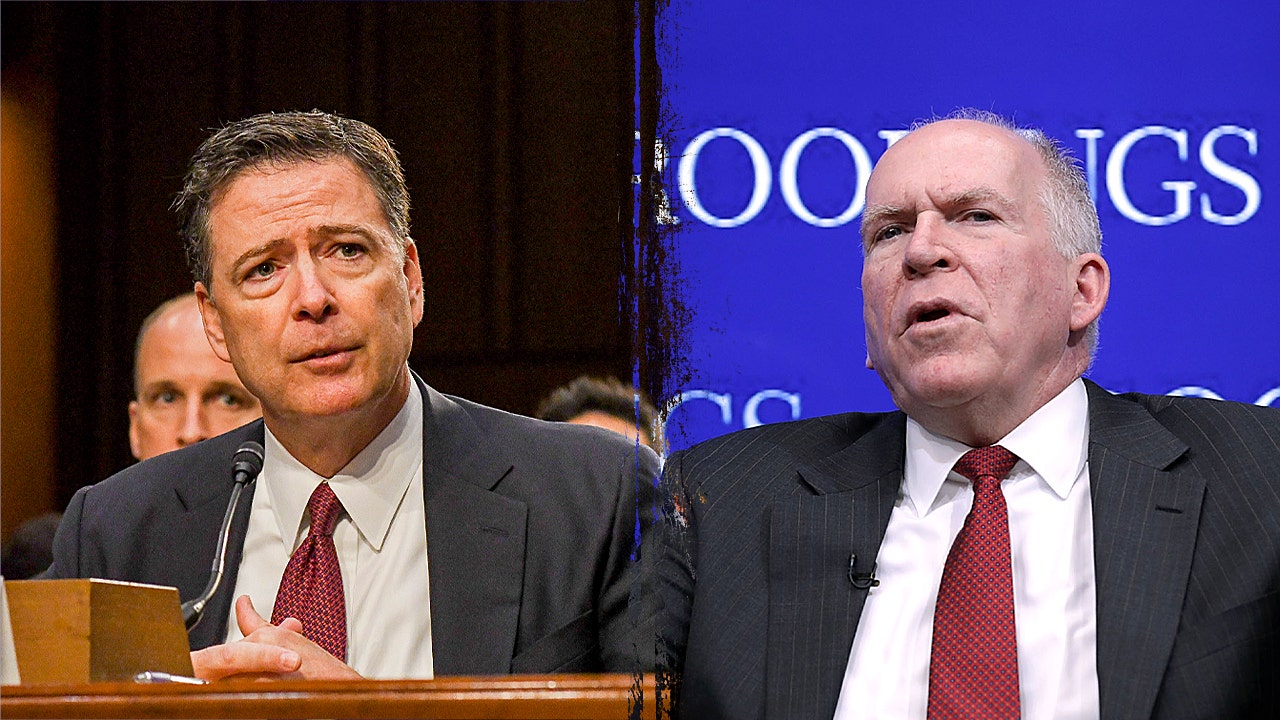
 Politics1 week ago
Politics1 week agoObama officials used dossier to probe, brief Trump despite knowing it was unverified 'internet rumor'
-

 News1 week ago
News1 week agoDOGE keeps gaining access to sensitive data. Now, it can cut off billions to farmers




